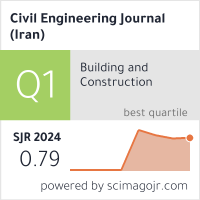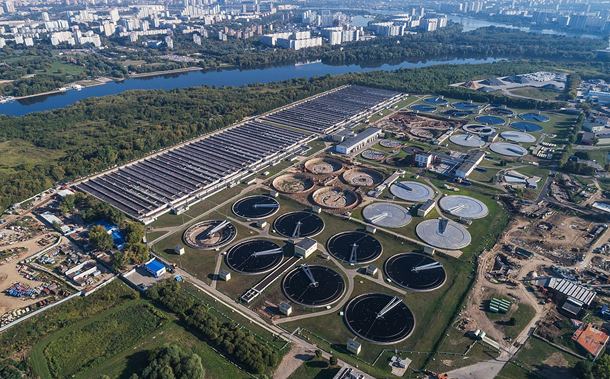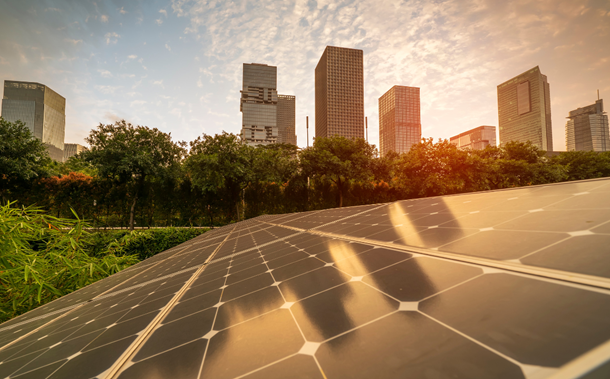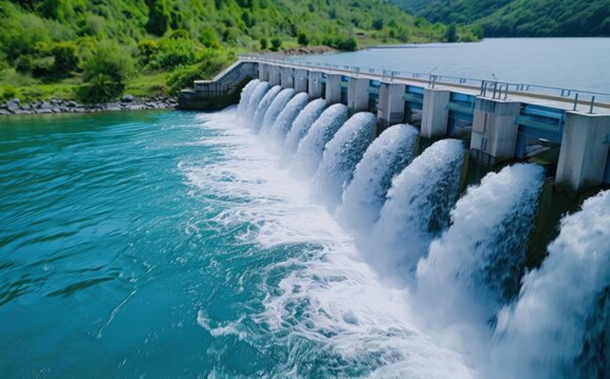Important Criteria for Swedish Construction Companies to Choose Environmentally Friendly Concrete
Downloads
Doi:10.28991/CEJ-2023-09-01-015
Full Text:PDF
Downloads
[2] Bahrami, A., Nexén, O., & Jonsson, J. (2021). Comparing performance of cross-laminated timber and reinforced concrete walls. International Journal of Applied Mechanics and Engineering, 26(3), 28–43. doi:10.2478/ijame-2021-0033.
[3] Bahrami, A., Vall, A., & Khalaf, A. (2021). Comparison of cross-laminated timber and reinforced concrete floors with regard to load-bearing properties. Civil Engineering and Architecture, 9(5), 1395–1408. doi:10.13189/CEA.2021.090513.
[4] Sousa, V., & Bogas, J. A. (2021). Comparison of energy consumption and carbon emissions from clinker and recycled cement production. Journal of Cleaner Production, 306, 127277. doi:10.1016/j.jclepro.2021.127277.
[5] Imbabi, M. S., Carrigan, C., & McKenna, S. (2012). Trends and developments in green cement and concrete technology. International Journal of Sustainable Built Environment, 1(2), 194–216. doi:10.1016/j.ijsbe.2013.05.001.
[6] Bahrami, A., Olsson, M., & Svensson, K. (2022). Carbon dioxide emissions from various structural frame materials of single-family houses in Nordic countries. International Journal of Innovative Research and Scientific Studies, 5(2), 112–120. doi:10.53894/ijirss.v5i2.414.
[7] Marinković, S., DragaŠ¡, J., Ignjatović, I., & ToŠ¡ić, N. (2017). Environmental assessment of green concretes for structural use. Journal of Cleaner Production, 154, 633–649. doi:10.1016/j.jclepro.2017.04.015.
[8] Sweden's Environmental Goals. (2018). Limited climate impact. Available online: https://cutt.ly/22iNn4a (accessed on March 2022). (In Swedish).
[9] Duxson, P., Provis, J. L., Lukey, G. C., & van Deventer, J. S. J. (2007). The role of inorganic polymer technology in the development of ‘green concrete'. Cement and Concrete Research, 37(12), 1590–1597. doi:10.1016/j.cemconres.2007.08.018.
[10] Yunsheng, Z., Wei, S., Sifeng, L., Chujie, J., & Jianzhong, L. (2008). Preparation of C200 green reactive powder concrete and its static-dynamic behaviors. Cement and Concrete Composites, 30(9), 831–838. doi:10.1016/j.cemconcomp.2008.06.008.
[11] Nozahic, V., Amziane, S., Torrent, G., Saí¯di, K., & De Baynast, H. (2012). Design of green concrete made of plant-derived aggregates and a pumice-lime binder. Cement and Concrete Composites, 34(2), 231–241. doi:10.1016/j.cemconcomp.2011.09.002.
[12] Ondova, M., Stevulova, N., & Meciarova, L. (2013). The potential of higher share of fly ash as cement replacement in the concrete pavement. Procedia Engineering, 65, 45–50. doi:10.1016/j.proeng.2013.09.009.
[13] Müller, H. S., Breiner, R., Moffatt, J. S., & Haist, M. (2014). Design and properties of sustainable concrete. Procedia Engineering, 95, 290–304. doi:10.1016/j.proeng.2014.12.189.
[14] Sheen, Y. N., Le, D. H., & Sun, T. H. (2015). Greener self-compacting concrete using stainless steel reducing slag. Construction and Building Materials, 82, 341–350. doi:10.1016/j.conbuildmat.2015.02.081.
[15] Golewski, G. L. (2017). Improvement of fracture toughness of green concrete as a result of addition of coal fly ash. Characterization of fly ash microstructure. Materials Characterization, 134, 335–346. doi:10.1016/j.matchar.2017.11.008.
[16] Alani, A. H., Bunnori, N. M., Noaman, A. T., & Majid, T. A. (2019). Durability performance of a novel ultra-high-performance PET green concrete (UHPPGC). Construction and Building Materials, 209, 395–405. doi:10.1016/j.conbuildmat.2019.03.088.
[17] Li, J., Zhang, W., Li, C., & Monteiro, P. J. M. (2019). Green concrete containing diatomaceous earth and limestone: Workability, mechanical properties, and life-cycle assessment. Journal of Cleaner Production, 223, 662–679. doi:10.1016/j.jclepro.2019.03.077.
[18] Li, Y., Qiao, C., & Ni, W. (2020). Green concrete with ground granulated blast-furnace slag activated by desulfurization gypsum and electric arc furnace reducing slag. Journal of Cleaner Production, 269, 122212. doi:10.1016/j.jclepro.2020.122212.
[19] Khan, S., Maheshwari, N., Aglave, G., & Arora, R. (2020). Experimental design of green concrete and assessing its suitability as a sustainable building material. Materials Today: Proceedings, 26, 1126–1130. doi:10.1016/j.matpr.2020.02.225.
[20] Elaqra, H. A., Elmasry, I. H., Tabasi, A. M., Alwan, M. D., Shamia, H. N., & Elnashar, M. I. (2021). Effect of water-to-cement ratio and soaking time of waste glass powder on the behaviour of green concrete. Construction and Building Materials, 299, 124285. doi:10.1016/j.conbuildmat.2021.124285.
[21] Zhang, S., Ghouleh, Z., & Shao, Y. (2021). Green concrete made from MSWI residues derived eco-cement and bottom ash aggregates. Construction and Building Materials, 297, 123818. doi:10.1016/j.conbuildmat.2021.123818.
[22] Bahrami, A., Awn, R. F., Corona, J., & Eriksson, B. (2022). How aware and active is the Swedish building and real estate sector of climate-smart concrete? International Journal of Engineering Trends and Technology, 70(1), 126–138. doi:10.14445/22315381/IJETT-V70I1P214.
[23] Liew, K. M., Sojobi, A. O., & Zhang, L. W. (2017). Green concrete: Prospects and challenges. Construction and Building Materials, 156, 1063–1095. doi:10.1016/j.conbuildmat.2017.09.008.
[24] Mahmoud, A. S., Mahmood, F. I., Abdul Kareem, A. H., & Khoshnaw, G. J. (2018). Assessment and evaluation of mechanical and microstructure performance for fly ash based geopolymer sustainable concrete. 2018 11th International Conference on Developments in ESystems Engineering (DeSE). doi:10.1109/dese.2018.00052.
[25] Makul, N. (2020). Modern sustainable cement and concrete composites: Review of current status, challenges and guidelines. Sustainable Materials and Technologies, 25, 155. doi:10.1016/j.susmat.2020.e00155.
[26] Chen, X., Wang, H., Najm, H., Venkiteela, G., & Hencken, J. (2019). Evaluating engineering properties and environmental impact of pervious concrete with fly ash and slag. Journal of Cleaner Production, 237, 117714. doi:10.1016/j.jclepro.2019.117714.
[27] Nath, P., Sarker, P. K., & Biswas, W. K. (2018). Effect of fly ash on the service life, carbon footprint and embodied energy of high strength concrete in the marine environment. Energy and Buildings, 158, 1694–1702. doi:10.1016/j.enbuild.2017.12.011.
[28] Bascement Slite. (2021). Cementa. Basement, Technical Description. Available online: https://www.cementa.se/sv/bascement-slite (accessed on March 2021). (In Swedish).
[29] Karlsson, S. (2020). Climate-smart concrete for bridge construction, Byggvärlden, Stockholm, Sweden. (In Swedish).
- Authors retain all copyrights. It is noticeable that authors will not be forced to sign any copyright transfer agreements.
- This work (including HTML and PDF Files) is licensed under a Creative Commons Attribution 4.0 International License.![]()















